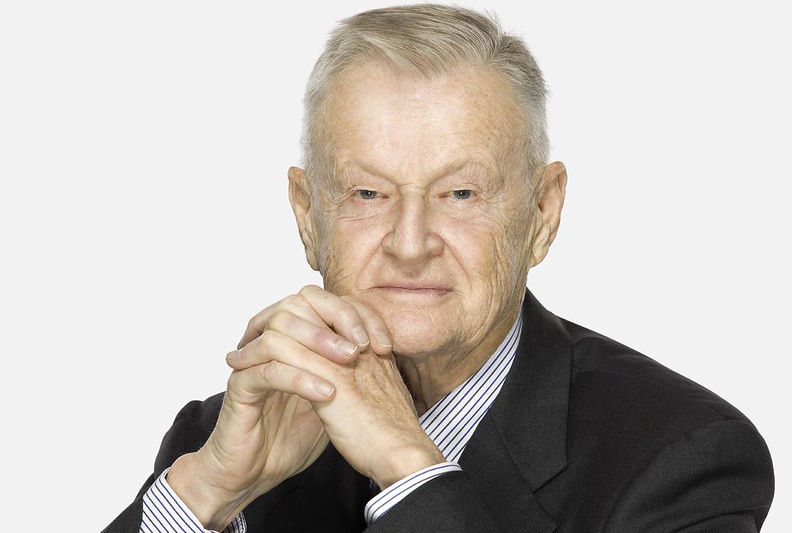Ukraine - US Brzezinski's ghost and the goading of the USSR
March 14, 2022
_Back in 1998, in an interview with the French news magazine, Le Nouvel Observateur, President Jimmy Carters National Security Adviser, Zbigniew Brzezinski, boasted how the US national security establishment had laid the groundwork for the eventual Russian invasion of Afghanistan in December 1979.
_
Months prior to that the US began to supply secret aid to the opponents of the pro-Soviet regime in Kabul knowing full well that if the USSR responded, it would get its own Vietnam War.
The USSR, of course, did get it. And the world in general and Afghanistan in particular got much else besides, consequences dismissed by Brzezinski as some stirred-up Moslems.
Right now, Brzezinskis spirit is infusing the talk and in certain quarters; indeed, it is plainly in evidence in the reckless talk bordering on war fever in the context of Russia defeating the current campaign by Ukraine to resist Russias invasion. Once again, the talk is of a post-occupation insurgency against the invaders after they have taken over the main cities and and significantly control the arteries of communication. And once again the US and its allies will be contributing spectators - vicarious witnesses to a war in which they will not fight but will cheer from the sidelines.
Clearly, Ukraines right to self-defence has been not only coopted but speedily corrupted by the Wests perceived opportunity to overextend and weaken Russia. The ethics and morals of the situation have been hijacked, overborne by the assertion that Russia deserves this fate.
While there is no argument against Russia being forced to desist, this objective should not ignore the fundamental criteria against which all political action is to be judged - namely, whether the actions taken will improve the situation or stop it from getting worse. Yes, there are definitional problems with applying the criteria. These however, do not countenance a crude application of the so-called principal of the end justifying the means.
Accordingly, and in the immediate context, there are two strains of talking, thinking and planning that are particularly pernicious. The first is probably, and fortunately, only a remote possibility: Senator Lindsey Grahams call for a Russian, or Russian, to assassinate President Putin. The repercussions need no elaboration here. In Europe, the history of assassination does not inspire confidence in improved outcomes.
The other is considered a certainty if Russia destroys the Ukrainian armed forces and occupies key areas in the country. Specifically it concerns the enthusiasm in the US for Ukrainians to make Russia suffer by way of an insurgency or, as one representative account phrased it, How the US can beat Russia in Ukraine without firing a shot.
More disturbing are the reports that the CIA has been training military and paramilitary forces in Ukraine for the last seven years should such a contingency emerge in resistance requires a stay-behind insurgent force. Essentially, the concept revolves around using locally recruited groups, or foreign mercenaries, within an occupied country as auxiliary forces to fight the enemy of the day.
These developments continue an inglorious tradition, reiterated constantly, and includes similar projects as far back as Gladio in post1945 Italy. The catalogue of outcomes comprise a substantial body of evidence documenting successive failures: Montagnards in the Vietnam War, Contras in Nicaragua, Mujahideen in Afghanistan, Sunni Awakening in Iraq, and the Northern Alliance, again in Afghanistan.
The general rule to be derived from the historical record is that they invariably lead to what is euphemistically termed blowback - unintended consequences of death and destruction resulting, overall, in failure.
Given the geography of the region, such a campaign in Ukraine requires safe havens for fighters across the border in the NATO countries of Hungary, Poland, Romania, and Slovakia; moreover, it could only be supported through these same four countries (assuming Moldova remains neutral). Russian forbearance appears to be sine qua non: its forces will refrain from hot pursuit of the insurgents into their havens.
To this incredible scenario should be added the use of private military corporations and foreign mercenaries: their use, though economically and politically expedient tends to result in a high incidence of indiscipline, atrocities and war crimes. Given that Russia is reported to be using Syrian and Chechen irregulars, and Ukraine is welcoming expatriates into militia units, the prospects are grim.
The attendant risks pose an immediate question and concerns Ukraines right to self-defence and resistance. Specifically, if Russia defeats Ukraine and occupies the country (as best it can), is Ukraine to be denied the wherewithal from without to make Russias costs unbearable?
The short answer is yes. Why? The reasons are straightforward: the history of recent insurgencies indicate that they are lengthy, extraordinarily destructive of civilian populations, ultimately exhaust the patience of their patrons, and are permanent incubators of the risk of becoming wider wars - significantly probable in the case of Ukraine.
Is this unjust? Yes, and No. Yes because Ukraine, though wanting to continue the fight, will not be free; indeed, it will be oppressed and there is no way to camouflage that. No because Ukraine does not have the right, nor should it be given the prerogative to prosecute its case according to the Latin legal phrase, fiat justitia ruat caelum(let justice be done though the heaven fall).
Quite apart from the outcomes of these operations, however, is the inexcusable, criminal mindset which ordains them as expedient in the moment. So . . a final question: is it a misreading to conclude that the the Australian Governments position is one of implicit support for an anti Russian insurgency in Ukrainian along the lines defined above? If so, it will incur a special form of guilt which Albert Camus was alive to at the time of the Hungarian Uprising in 1956 when he wrote:
I am not one of those who wish to see the people of Hungary take up arms again in a rising certain to be crushed, under the eyes of the nations of the world, who would spare them neither applause nor pious tears, but who would go back at once to their slippers by the fireside like a football crowd on a Sunday evening after a cup final.There are already too many dead in the stadium and we cannot be generous with any but our own blood.

